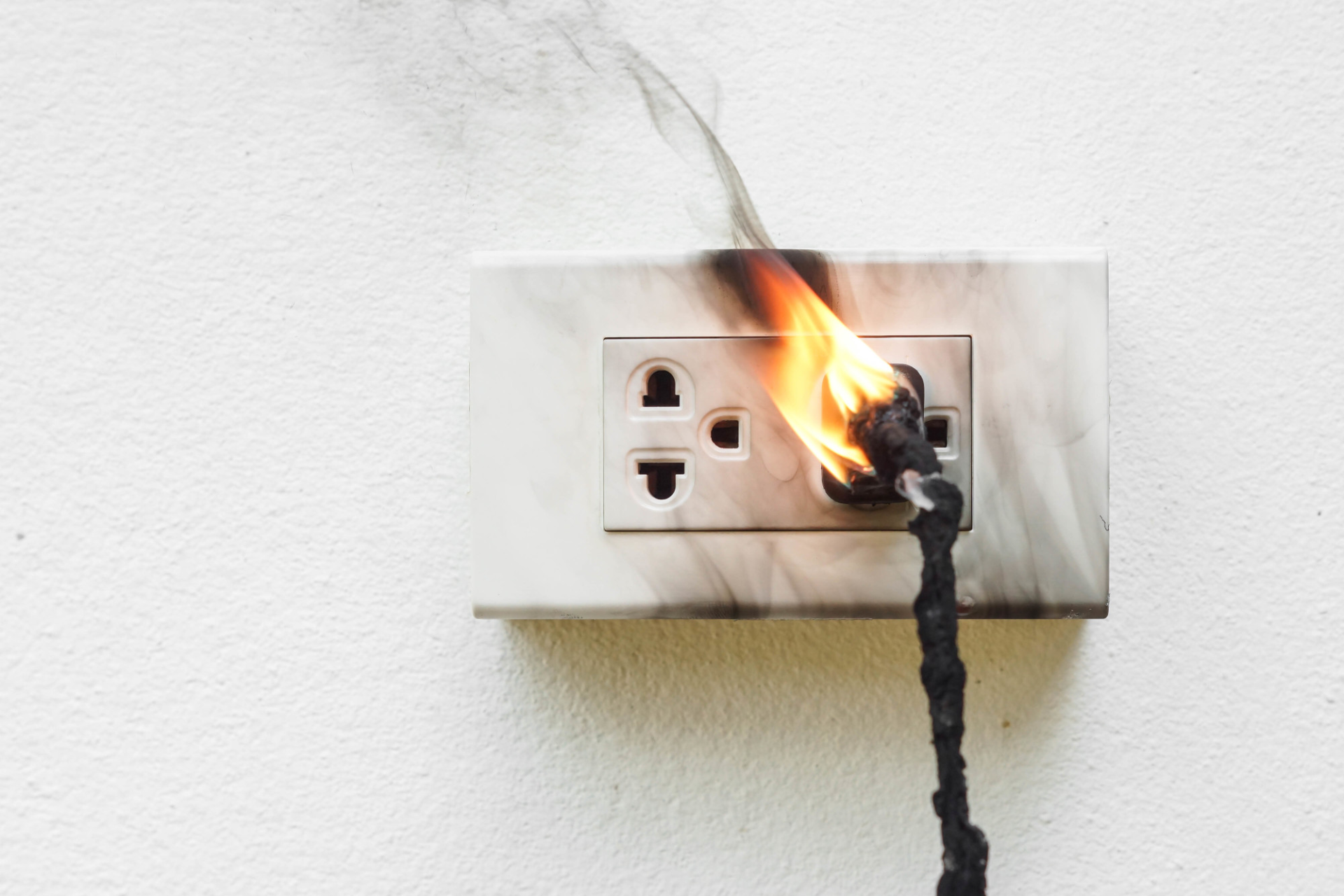The winter months can be a dangerous time for fires in the home. Fires are often started by unattended cooking, overloaded circuits, or faulty wiring. The National Fire Protection Association reports that U.S. fire departments responded to an estimated average of 210,000 house fires per year with 12 people dying every day from these blazes. To protect yourself and your family from this danger, follow these 7 tips for reducing the risk of a fire in your home and having proper home fire safety:
1) Keep all flammable materials at least three feet away from any heat source
This includes the stove, fireplaces, candles or space heaters.
Flammable materials can easily catch on fire if within three feet of a heat source because they are exposed to extremely high temperatures in that range.
2) Make sure space heaters have proper ventilation
If you use a space heater, keep it three feet from anything flammable to prevent a fire.
Space heaters should also have proper ventilation so that they do not build up carbon monoxide in enclosed spaces.
You can test whether or not your space heater is ventilated by placing a small piece of paper near the unit and seeing if it will burn.
If the paper catches on fire, it is not properly ventilated.
Check to make sure there are no spaces in which the carbon monoxide could collect in order to avoid any risk of a gas leak or explosion that can result from lack of ventilation around space heaters.
3) Never leave candles burning unattended
Candles should be blown out when leaving the room and never placed near anything flammable.
If you are making a romantic dinner for two, it is best to use battery-operated tea lights instead of an open flame candle in order to prevent any fire accidents from occurring.
Make sure that candles have proper ventilation so they do not build up heat, which could cause them to explode.
The best way to prevent burning accidents is by extinguishing candles when leaving the room or going to bed for the night.
Children should never be left alone with lit candles in order to avoid any injuries that may result from their carelessness around fire.
You can also use flameless candles in order to avoid any accidents from happening due to an open flame.
You can find flameless LED candles on the market today that burn just as brightly and look exactly like a real candle, but they don’t pose any burning risks or hazards associated with using actual flames.
Candles should also have proper ventilation so they won’t build up heat.
The best way to prevent burning accidents is by extinguishing candles when leaving the room or going to bed for the night.
Children should never be left alone with lit candles in order to avoid any injuries that may result from their carelessness around fire.
4) Turn pot handles inward on stoves to avoid burns
Turning pot handles inward would avoid children from accidentally tipping them over and getting burned on hot liquids.
When cooking, it is best to keep small children away from the stovetop in order to prevent any accidents that could result from their curiosity around fire or burns if they were to touch a pan left unattended.
Make sure the stovetop is clean and free of any grease or oil that may catch on fire.
Use a stove timer to remind yourself when food has been cooking for more than the recommended time, which could cause it to burn if left unattended.
Be sure your smoke detectors are working properly so you can be alerted in case there was an accident while you were cooking.
Pot handles should be turned inward to avoid children from accidentally tipping them over and burning themselves on hot liquids that spill out the pan.
5) Test your smoke detectors weekly
Smoke detectors should be tested regularly to make sure they are working properly.
You can do this by pushing the test button on the unit or simply replacing the batteries if it begins chirping due to low power.
If you have children, teach them how important it is for everyone in your family to know what to do in case of a fire.
Make sure any flammable materials are kept away from your smoke detectors so they don’t catch on fire and set off the alarm while you’re sleeping, which could cause everyone to panic and become disoriented.
Smoke detectors should be tested regularly by pushing the test button or replacing the batteries if it begins chirping due to low power.
Make sure any flammable materials are kept away from your smoke detectors so they don’t catch on fire and set off the alarm while you’re sleeping, which could cause everyone to panic and become disoriented.
Smoke detectors should be placed in all areas of your home, including the kitchen, living room, and laundry area.
6) Make sure your smoke detectors are placed properly
You can place smoke alarms in all areas of the home, including the kitchen, living room and laundry area.
Make sure it is at least three feet from any walls or furniture so you won’t miss a fire if it starts while everyone’s asleep.
Place one on every level of your home, including the basement and attic.
You can place smoke alarms in all areas of your home.
Make sure it is at least three feet from any walls or furniture so you won’t miss a fire if it starts while everyone’s asleep.
Place one on every level of your home, including the basement and attic.
7) Keep an escape plan in mind
You should always have an escape plan in place so everyone in your family knows what to do if there was a fire.
Make sure all members of the household know how to get out safely and where smoke detectors are located.
Since you never know when you could be dealing with smoke or fumes, it is important to have a backup plan in case one of your exits is blocked or difficult to reach.
Make sure all members of the household know how to get out safely and where the smoke detectors are located.
Summary:
In conclusion, it is important to remember these tips when you are cooking, extinguishing candles and make sure everyone in your home knows what to do if there is a fire.
We hope you found this article helpful and will take these 7 tips into mind when you are cooking, extinguishing candles or working around the fireplace.
It is important to remember these tips when you are cooking, putting out candles and making sure everyone in your home knows what to do if there is a fire.
We hope you found this article helpful and will keep all of these tips in mind.




